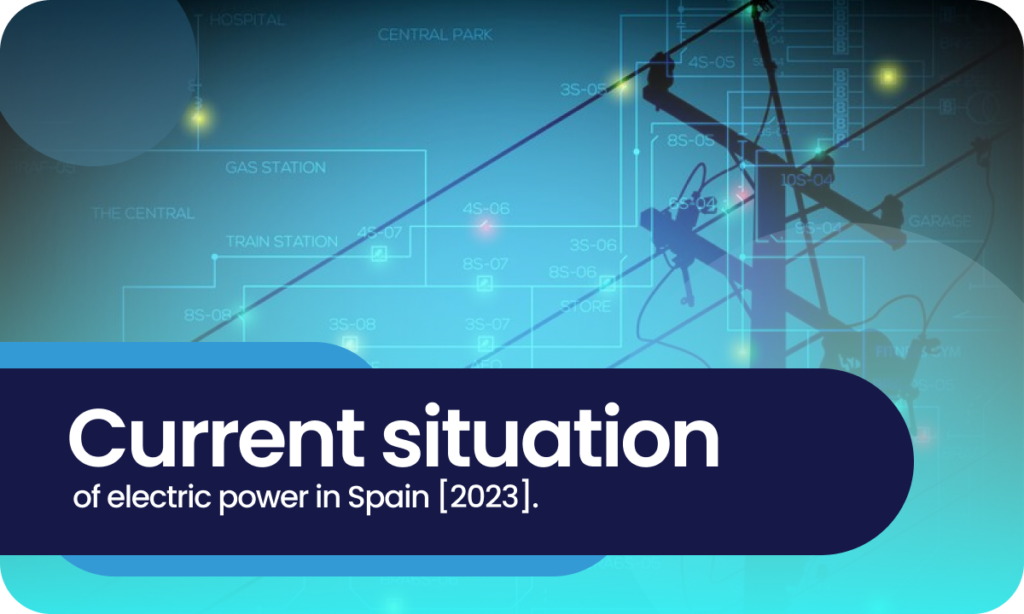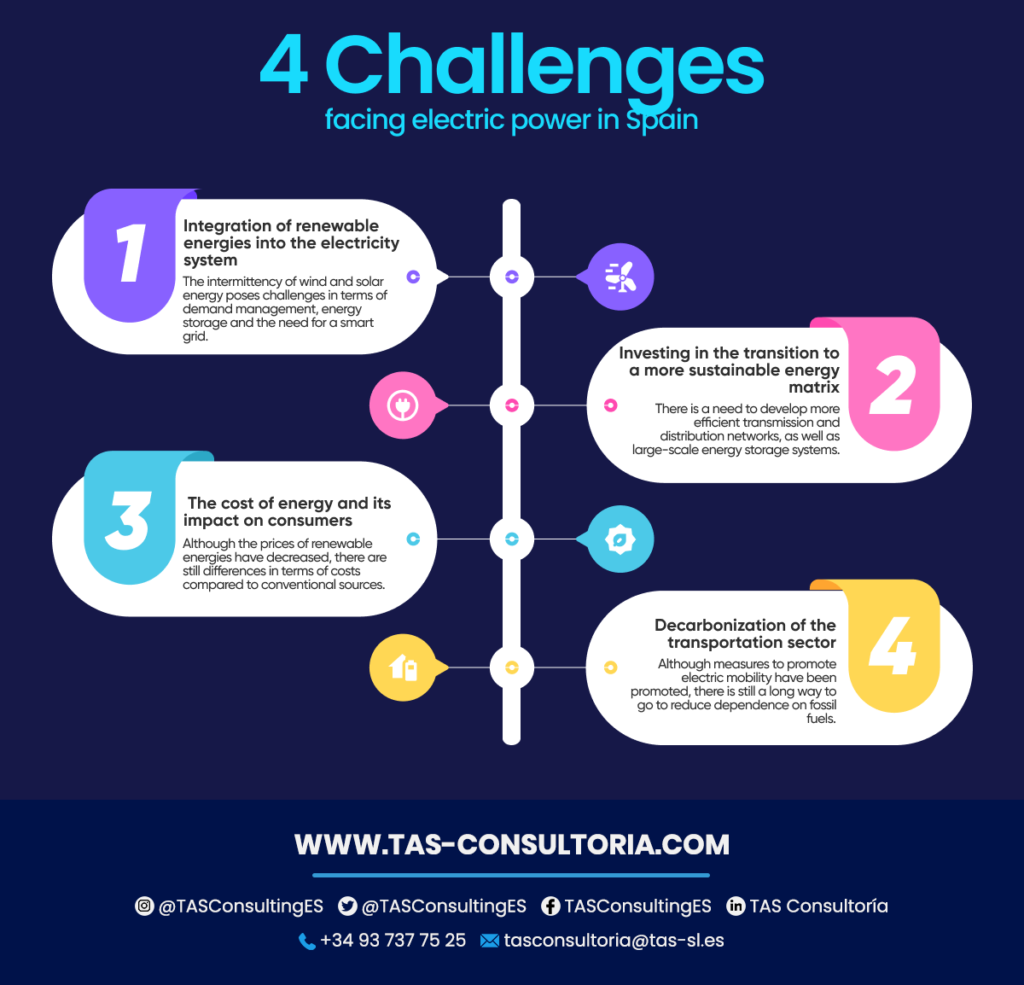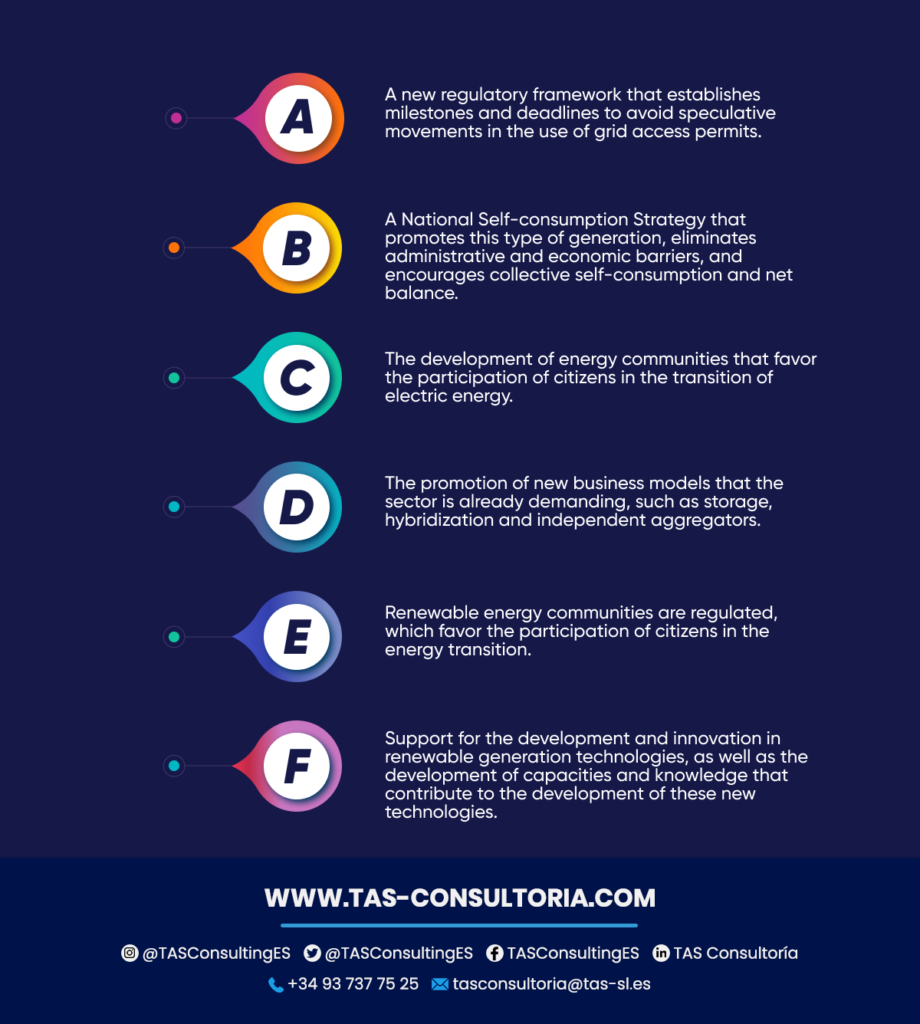
The situation regarding energy demand in Spain is undoubtedly giving rise to a lot of talk. This is due to the important changes and improvements that it has experienced and that are remarkable compared to previous years. However, you can still see important remains of the energy crisis generated by the war in Ukraine. Do you want to come to Spain and start your business idea? Then it is essential that you know about the demand for electricity in Spain, let’s go!
What is the current situation of electric power in Spain?
The country’s electricity demand experienced a 7.7% decrease in April 2023 compared to the previous year. In the first four months of the year, demand was 4.3% lower than in the same period of 2022.
In terms of energy production, Spain has made significant progress in diversifying its generation sources.
During the last few years, there has been an increase in renewable generation capacity, mainly wind and solar energy. This has been achieved through investments in renewable energy projects and the implementation of supportive policies.
Renewable energy has experienced substantial growth, and by 2023, it is expected to represent a considerable part of the Spanish energy mix.
Wind energy has consolidated its position as one of the main sources of generation, with an increase in installed capacity and production. In addition, solar photovoltaic energy has experienced rapid growth, driven by the reduction in technology costs and promotion policies.
However, energy production from non-renewable sources, such as natural gas and coal, still plays an important role in the Spanish energy mix. It still plays an important role in the Spanish energy mix.
Although there has been a gradual reduction in coal-fired generation, natural gas continues to be a relevant source of energy. Due to its lower environmental impact compared to coal and oil.
You may also be interested in: Digital Spain 2025: Basic Guide
What policies did Spain implement to improve energy demand?
With regard to the country’s energy demand and the policies to address it, Spain established a series of objectives and commitments for the transition to a more sustainable energy matrix.
One of the main milestones is the National Integrated Energy and Climate Plan (PNIEC). This establishes the guidelines and measures to achieve the objectives established in the Paris Agreement and the European Union.
The PNIEC sets ambitious goals for renewable energy generation. Among its most prominent objectives is the improvement of energy efficiency and the reduction of greenhouse gas emissions.
It is expected that with this new plan, by 2030, 70% of the electricity generated in Spain will come from renewable sources. In addition, the plan calls for the decarbonization of the electricity system by 2050.
This is why the Spanish government has implemented different measures to encourage investment in renewable energies. These include competitive auctions and incentive schemes to encourage this market.
Regulatory reforms have also been introduced to facilitate the integration of renewable energies and reduce energy demand. One of these reforms was made in the electricity grid, and energy efficiency was promoted in different sectors, such as building and transportation.
What is the National Integrated Energy and Climate Plan?
The National Integrated Energy and Climate Plan (PNIEC) is the document that establishes the objectives and measures for the electric power transition in Spain. This is for the period 2021-2030. Being so, the PNIEC is based on five main axes:
- Reduction of greenhouse gas emissions.
- Increased participation of renewable energies.
- Improved energy efficiency.
- Guaranteed security of supply.
- Promoting competitiveness and employment.
This document aims to reduce greenhouse gas emissions by 23% compared to 1990. It also aims to achieve a 42% share of renewable energies in final energy use.
Not to mention the plan to improve energy efficiency by 39.6% and achieve a 74% integration of renewable electricity in the electricity system. These objectives are consistent with the commitments made by Spain in the framework of the Paris Agreement and the European Union.
In addition, the PNIEC is key to boosting the decarbonization of the Spanish economy, promoting sustainable development and generating opportunities for growth and employment. But also to improve air quality and people’s health, reduce energy dependence on foreign countries and strengthen social and territorial cohesion.
You may also be interested in: What is the energy situation in Spain in 2022?
4 challenges facing Spanish energy sources
Despite the progress made, energy demand in Spain is increasing. This generates significant challenges for the country that slow down the process of integration of renewable energies. The most important of these are:

This means that despite all the progress that has been made in the country’s energy situation, challenges remain. As a consequence, they slow down all the growth that renewable energies have had so far.
What measures have been implemented to improve renewable energy production in Spain?
Spain is committed to achieving a 100% renewable electricity system by 2050. This is a great challenge and a great opportunity for the country to reduce energy demand.
To achieve this goal, the government has approved several measures aimed at promoting the deployment and integration of renewable energies. In addition, it is expected to favor citizen participation and economic reactivation, and to reduce dependence on fossil fuels and the electricity bill:

These measures are also part of the National Integrated Energy and Climate Plan (PNIEC) (2021-2030). This plan foresees a significant increase in the penetration of renewable energies in Spain, reaching 74% in electricity and 42% in end use by 2030.
This will enable Spain to take advantage of its potential in terms of job creation, economic activity and competitiveness. These objectives are in line with the European Union’s economic recovery plans.
You may also be interested in: The road to digitization of the public sector in Spain
If you come to Spain to bring your business idea and establish yourself in the country, you need to be aware of the current situation. Therefore, we invite you to subscribe to our content blog, where we publish daily content of your interest and news from the business world.
Do you need advice before starting a business in Spain? Contact us through tasconsultoria@tas-sl.es and schedule your personalized advice. We will attend your case according to the specific needs of your business to take it to success, what are you waiting for?




Your email address will not be published .
Required fields are marked with *